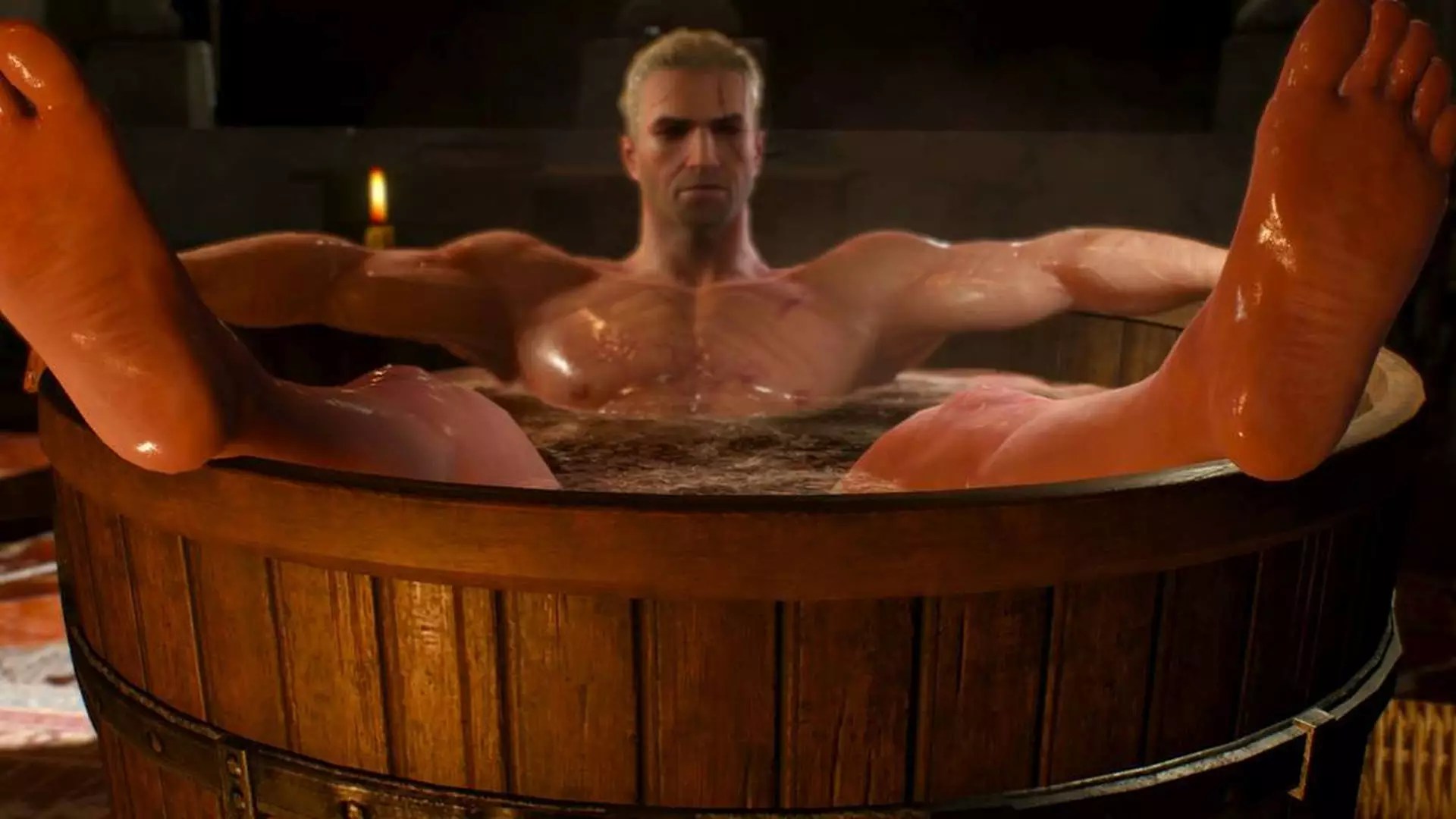In recent discussions surrounding the development of *The Witcher 3*, a fascinating concept surfaced: a mechanic that would force players to strip Geralt of his armor in order to swim. While CD Projekt Red (CDPR) cautiously unveiled this idea as part of their tenth-anniversary celebrations, it has sparked a broader conversation about the thin line between immersion and realism in gaming. The developers themselves seem to have recognized that such a mechanic leans more toward unnecessary complication than enriching gameplay; it’s a rare instance where more realism might ruin the fantasy.
The idea that a character should be vulnerable in water while encumbered by equipment is grounded in an element of historical fact—such as the fate of Emperor Frederick Barbarossa—but implementing this as a game mechanic runs the risk of detracting from the overall experience. Players seek escapism and adventure, not the stress of meticulously managing equipment for every possible encounter with water.
User Experience: What Makes a Game Enjoyable?
A definitive quality that defines a successful game is its capacity to engage players without overwhelming them. Consider the swimming mechanic introduced in various video games: often straightforward, players simply dive into water without requiring a convoluted preparation process. By compelling Geralt to disrobe to partake in swimming, CDPR would have likely introduced a barrier that disrupts flow and punishes exploration. In a medium where player agency and enjoyment are paramount, tedious tasks that serve no purposeful narrative should be avoided at all costs.
Moreover, think about the implications for more intricate game scenarios. In countless quests, Geralt is required to enter bodies of water, often for missions steeped in urgency or exploration. Applying this harsh mechanic would have added an element of frustration rather than authenticity, leading gamers to disengage or seek workarounds. As players navigate a world filled with magic, monsters, and intrigue, an unrealistic mechanic rooted in enabling drowning would undermine the very escape they seek.
Development Priorities: Choosing Fun Over Realism
Game development is a delicate balancing act between artistic vision and user experience. CDPR’s decision to abandon the stripping mechanic speaks volumes—they understand that players prioritize enjoyment over the fidelity of realism. It’s a conscious choice to favor creativity, fluid gameplay, and fantasy elements, elevating player satisfaction above cumbersome realism.
Furthermore, this decision sheds light on the broader trend within the gaming industry: developers recognize that while realism can add depth, excessive attempts to ground gameplay in reality often backfire. Other titles showcase the dangers of overcomplicating simple mechanics under the guise of delivering a hyper-realist experience. From clunky controls to monotonous tasks, such choices alienate audiences who crave engaging adventures, not laborious chores.
Thus, as CDPR celebrates the remarkable journey of *The Witcher 3*, we can find solace in their thoughtful approach toward game mechanics. Striding toward the future, it’s encouraged that developers continue to evaluate what enriches the player’s experience, steering clear of unnecessary impediments to enjoyment. After all, games are meant to be an outlet for imagination, not an exhausting challenge against the elements.


Leave a Reply